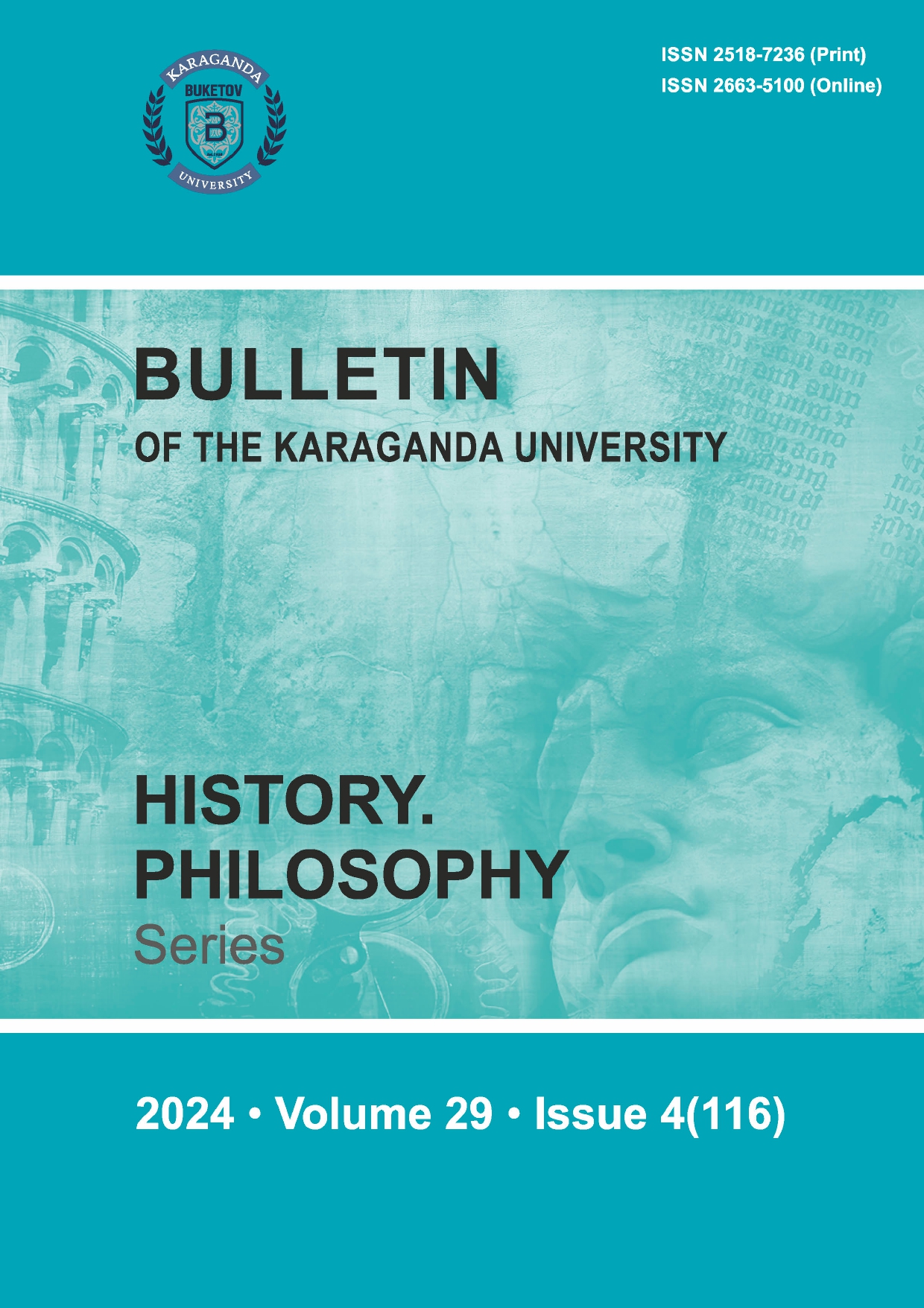On the deformation of ethical discourse in Soviet philosophy
DOI:
https://doi.org/10.31489/2024hph4/244-251Keywords:
Philosophy, Soviet philosophy, dialectical and historical materialism, ethics, Marxist-Leninist ethics, “party ethics”, the main question of philosophy, ideologyAbstract
The problem of transformation of philosophical discourse in the Soviet era was discussed. This discourse af-ter the discussions of the 20s established itself on two basic positions formulated earlier by Engels: 1) philos-ophy is a science, 2) true philosophy is materialism. Besides, the main attitude for philosophers defined dog-matically understood 11th thesis of Marx on Feuerbach. The main ideological directions of the post-revolutionary period were analyzed. Ultimately, by the mid-30s, ethics disappeared from philosophy, whichitself was transformed into ideology. The article defends the thesis that when the discussion of ethical prob-lems returned to philosophy in the early 60s, it did not make up for the gaping the hole created by the defor-mation realized earlier. The so-called “Soviet Marxist-Leninist philosophy” failed to take the place thatshould rightfully belong to it. Ethics never appeared in the programs of universities (with the exception ofphilosophy faculties), leaving room only for dogmatically understood ontology and epistemology. The proc-lamation of Marxist-Leninist ethics as a qualitatively new stage in the development of world ethics did notchange anything either, since what was offered in textbooks under this name could in no way compete withclassical ethical works. The paper shows that 1) the accents in the approach to philosophy changed signifi-cantly, they shifted the main direction of philosophy from human being to the doctrine of the world, 2) text-book on ethics had nothing to do with everyday ethics, 3) within the framework of class ethics, the human be-ing as an autonomous person was not a part of the ethical system




